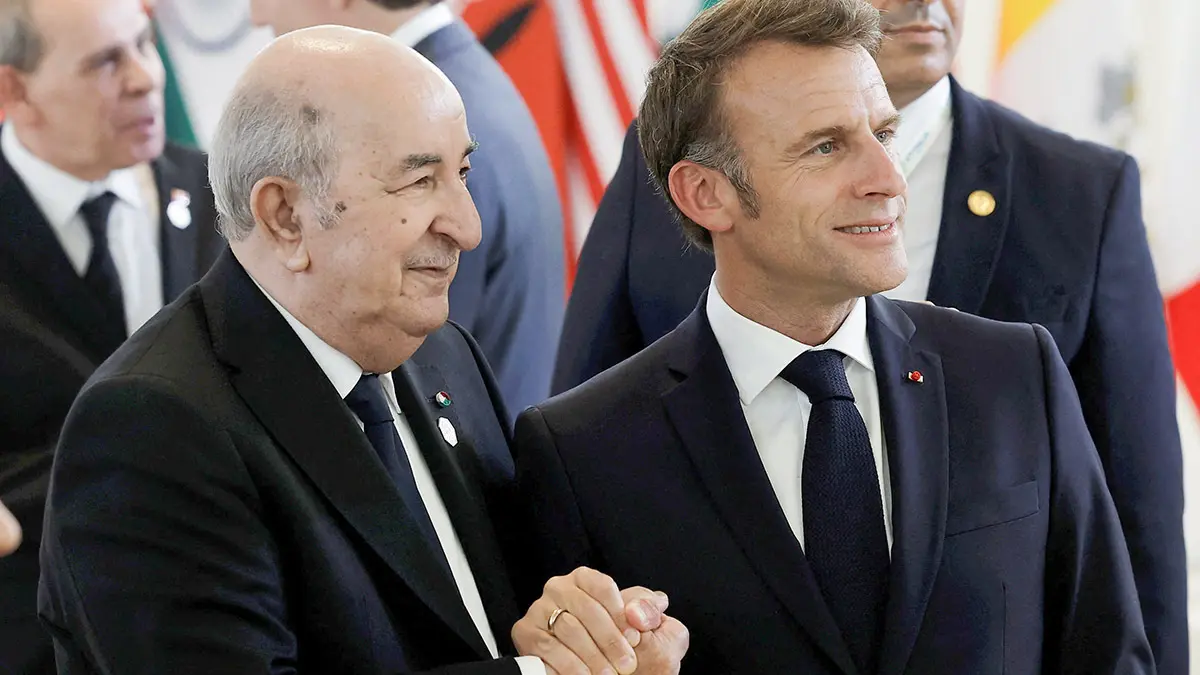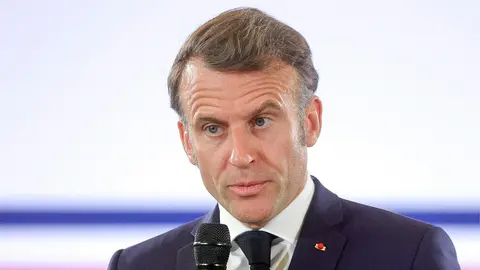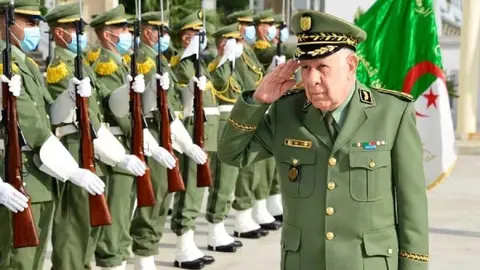Macron's intervention further strains relations between Algeria and France

Algeria and France continue to go through a turbulent period in their diplomatic relations.
The public intervention of French President Emmanuel Macron, calling for tougher requirements for Algerian diplomatic visas, has further escalated tensions.
Macron asked his government to tighten visa requirements for Algerian diplomats amid a growing list of grievances between the two nations.
Macron's announcement of the new measures marks the first time in several months that the president has entered the fray of reprisals and counter-reprisals between the two countries.
Until now, the management of the tense relations between Paris and Algiers had been in the hands of French Interior Minister Bruno Retailleau and Foreign Minister Jean-Noël Barrot.
Analysts see the French president's involvement as a personal setback for Algerian President Abdelmadjid Tebboune, who has sought to shield ties with Macron from the fallout of recriminations between France and Algeria.
He had said in the past that the French president would remain Algeria's ‘only reference’ in France.
Earlier this month, Tebboune repeated that he had ‘no problem’ with Macron or France, instead attributing the problems to an ‘extremist minority’ in France that harbours ‘an obsession with Algeria’.
In a letter to his prime minister, François Bayrou, published by the French daily Le Figaro, Macron said that the growing difficulties France faces in terms of migration and security with Algeria require a tougher stance against the former French colony.
Macron asked Barrot to officially notify Algeria of the suspension of a 2013 agreement that exempted holders of diplomatic and official passports from visa requirements.
He also asked the French interior minister to ask Schengen zone countries, which allow passport-free travel between their borders, to help France enforce the stricter visa policy, in particular by consulting France on the issuance of short-stay visas for Algerian officials in question and passports covered by the 2013 agreement.
France must be strong and inspire respect. It can only obtain this from its partners if it shows them the respect it demands. This basic rule also applies to Algeria, Macron said.
To explain his hardened stance towards Algiers, Macron cited the cases of French-Algerian writer Boualem Sansal, sentenced by an Algerian court to five years in prison for ‘undermining the territorial integrity’ of the country, and French journalist Christophe Gleizes, sentenced to seven years in prison in Algeria for ‘apologising for terrorism’.
In July, an Algerian court upheld a five-year prison sentence against Sansal, an 80-year-old dual national, for comments made to a French media outlet.
Following the verdict, French Prime Minister François Bayrou said he hoped his Algerian counterpart would grant Sansal a pardon, which never happened.
The French president also urged Tebboune to show ‘mercy and humanity’ towards the author, but to no avail.
In his letter to the French prime minister, Macron also cited ‘Algeria's failure to fulfil its obligations’ on migration and the lack of cooperation between Algerian consulates and the French authorities.
Barrot had already announced on 14 May ‘the return to Algeria of all officials holding diplomatic passports who do not have a valid visa’, in response to what he described as an ‘unjustified and unjustifiable’ decision taken earlier by Algiers to expel French officials.
Macron also called on the government to ‘immediately’ use a provision of the 2024 immigration law, the ‘visa readmission lever (LVR)’, which ‘allows the refusal of short-stay visas to holders of service and diplomatic passports, as well as long-stay visas to all types of applicants’.
Ties between Paris and Algiers have deteriorated since France recognised Morocco's sovereignty over Western Sahara in July 2024, amid growing support from Western capitals for the Moroccan kingdom's autonomy plan for the territory.
In early April, there was a brief thaw in tensions after Barrot's visit to Algiers, but a week later, retaliatory diplomatic expulsions strained relations once again.
In mid-April, France recalled its ambassador to Algiers and expelled 12 members of the Algerian consular and diplomatic network in France, after Algiers had expelled 12 French diplomatic officials.
The stalemate in Franco-Algerian relations is the result of a historical accumulation of unresolved problems and unhealed wounds, as well as current political disagreements on regional and sensitive issues and the influence of internal factors in both countries.
These include the issue of Algerian archives held in France, which France has so far refused to hand over in their entirety, as well as the issue of people who disappeared during the war of liberation.
Divergent views on migration and the movement of people between the two countries have also been a persistent point of contention.
Statements by some French officials, particularly those that Algeria considers interference in internal affairs or that have a colonialist outlook, have exacerbated tensions.
A poor relationship has significant repercussions for security, the economy and society. Trade is extensive and around ten per cent of France's 68 million inhabitants have links with Algeria, according to French officials.










